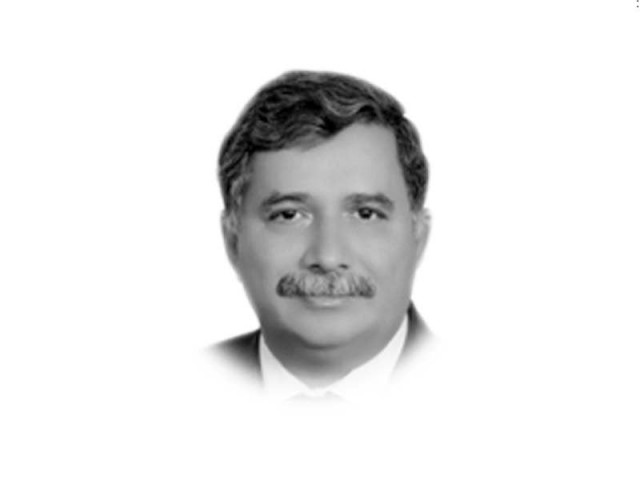Leadership crisis: reality and implications
Leadership in crisis demands courage and vision to uphold democratic values and ensure national progress.

I recently had the honor of participating as a panelist in a seminar titled Leadership Crisis: Reality and Implications, where I shared my thoughts on the attribute's leaders must possess to represent the hopes and aspirations of their nations. Among these, courage and honesty stand paramount.
Ernest Hemingway described courage as "grace under pressure" which a leader is expected to exhibit. History reveals that true leadership often arises in times of crisis, demanding decisions that may risk careers or popularity but ultimately serve the greater national interest. Great leaders demonstrate this courage, making tough choices that are sometimes unpopular within their constituencies but vital to the nation's well-being.
In the corporate world, leaders pursue organisational goals by inspiring, taking ownership, and giving credit where it is due. They uphold principles while adapting to changing circumstances, and possess the vision to lead transformation. As Ghalib beautifully expressed:
Qatra mein dajla dikh?? na de aur juzv mein kul
Khel la?koñ k? hu? d?da-e-b?n? na hu?
(If the river is not visible in the drop, nor the whole in the part,
Then it is not a seeing eye, but merely child's play.)
A true leader has deep insight, perceives future challenges, and makes timely, discerning decisions. Such a leader builds cohesive teams, aligning their efforts toward shared goals.
Seen in the backdrop of history Pakistan reflects a near-constant state of crisis, often exacerbated by brief intervals between successive military regimes. Constitutional abrogation and suspensions were frequently justified by claims of administrative breakdowns and threats to national unity. Pakistan had no constitution until 1956, during which time the country saw seven prime ministers and a single Commander-in-Chief. Leadership failed to recognise democratic aspirations or to resolve pressing issues, such as establishing Bengali as an official language, which eventually contributed to the division of Pakistan.
In another instance, Pakistan's leaders yielded to foreign pressures, particularly from superpowers, by joining alliances such as SEATO and CENTO and offering the US an airbase at Badaber, Peshawar, to monitor the Soviet Union. When a U-2 spy plane originating from this base was shot down, Peshawar itself became a target, encircled with threats of Soviet retaliation.
The appointment of General Ayub Khan as Defence Minister marked the decline of civilian governance. Sitting within the cabinet, Ayub manipulated President Iskander Mirza to dismiss Prime Minister Feroz Khan Noon's government. Within 20 days, he used force to obtain Mirza's resignation, ushering in a decade-long military rule under a 1962 constitution crafted to fit Ayub's persona.
Throughout this period, leaders naturally emerging from the populace - such as Sheikh Mujibur Rahman, Hussain Shaheed Suhrawardy, Maulvi Fazal Haq, Khan Abdul Ghaffar Khan and others - were sidelined or crushed through state power. Bereft of visionary leadership and focused only on immediate tactics, Pakistan launched Operation Gibraltar, leading to a 17-day war with India in 1965, which concluded with the Tashkent Agreement.
Despite the so-called 'Decade of Development' under Ayub, when the masses failed to see the effects of growth, protests forced Ayub to resign, paving the way for General Yahya Khan's martial law. The 1970 elections gave the Awami League a clear mandate, but the refusal to honour this mandate led to Pakistan's disintegration and the creation of Bangladesh.
In the post-breakup era, Pakistan began anew under the 1973 Constitution, reflecting the foresight of Zulfikar Ali Bhutto and other elected leaders. However, the country's political culture continued to lack tolerance, with politicians frequently at odds. Bhutto, facing threats from US Secretary of State Henry Kissinger and widespread agitation led by the Pakistan National Alliance, saw his government overthrown by a military coup, which led to 11 more years of martial law.
In the 1990s, although civilian rule returned briefly, autocratic tendencies remained entrenched in powerful but unelected institutions. Pakistan's fourth military regime arrived under General Pervez Musharraf. Since his departure, Pakistan has been a quasi-democracy, with constitutional powers continually ceded to administrative bodies beyond the scope of the constitution. The 2023 elections have only deepened political turmoil, as demands for "real freedom" reflect widespread disillusionment.
Pakistan now faces a complex socioeconomic and structural crisis, with 30 million children out of school, widespread deprivation of healthcare, rampant lawlessness, and violations of fundamental rights. Stark wealth inequality, a nearly stagnant GDP, and a poverty rate of 40% characterise the nation. Simultaneously, militancy and terrorism continue to threaten Pakistan's stability, leaving its citizens in fear and prompting many to seek lives abroad. These challenges are symptomatic of misgovernance and an absence of accountable leadership.
The path to stability and progress lies in upholding the rule of law, with the constitution as the supreme framework for democratic civilian governance. Seventy-five years on, Pakistan remains politically unstable, unable to fully adhere to its constitution. This fundamental crisis continues to stymie socioeconomic progress. Overcoming it will require leaders with the courage of conviction to stand up for constitutional governance, ensuring a foundation of justice and accountability essential for lasting development and prosperity.
















COMMENTS (1)
Comments are moderated and generally will be posted if they are on-topic and not abusive.
For more information, please see our Comments FAQ